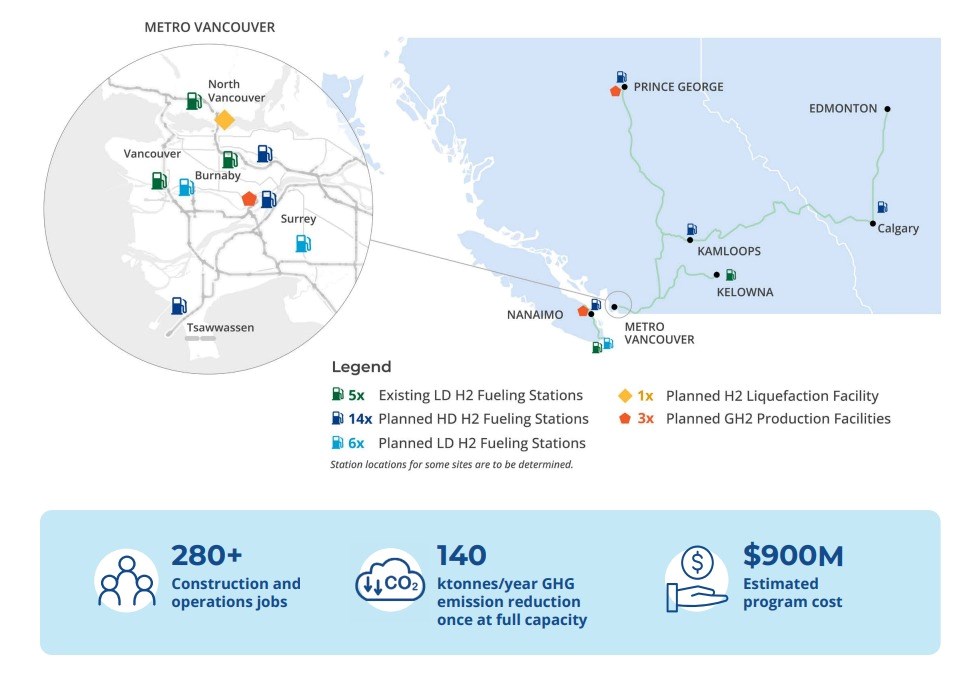
HTEC plans a $900-million network of refuelling stations for hydrogen-powered transports
Prince George is among three B.C. communities where a Vancouver company plans to establish new hydrogen production plants to supply a network of fuelling stations.
Aided by a $337-million loan from the Canada Infrastructure Bank, announced Friday in North Vancouver, Hydrogen Technology & Energy Corporation’s $900-million H2 Gateway project will also include up to 20 hydrogen refuelling stations, 18 of them in B.C. and the others in Alberta, as well as
Burnaby and Nanaimo were named as the two other communities where production plants are in the works.
In Burnaby, construction of a plant has begun at 6120 Trapp Ave. and it expected to be operational in late 2024, according to a fact sheet. For Nanaimo, HTEC is developing a a two-tonne-per-day facility scheduled to be operational by late 2025, according to another fact sheet.
An operational date for the proposed Prince George plant was unavailable. No specific fact sheet was produced for the city and it is mentioned just once in the fact sheet for the H2 Gateway project as a whole.
However, HTEC president Colin Armstrong mentioned Prince George during a media event on Friday while saying that developing an “ecosystem” of supply and fuelling stations was the first step in creating demand for hydrogen adoption in the transport industry.
“We can’t quite drive up to Prince George today, but our goal is to connect up there, particularly on the heavy-duty side of things,” Armstrong told The Canadian Press. “But once we do this, we believe we can take (hydrogen) certainly across the country and to the rest of the world.”
Another facility to liquefy 15 tonnes of byproduct hydrogen would be built in North Vancouver. No timeline was provided.
Fourteen of the 20 new stations will enable refuelling of up to 300 heavy duty vehicles per day. More than 280 full-time jobs will be created to build, operate and support the network, according to an estimate.
The loan from CIB “will help accelerate the implementation of hydrogen technology and help mitigate uncertainty in the rate and pace of hydrogen adoption, which have historically been barriers to private investment in sustainable fuel production and infrastructure,” CIB and HTEC said in a joint press release.
The provincial government is also backing the project through four low carbon fuel standard agreements valued at up to $133 million.
The H2 Gateway could reduce emissions from the transportation sector by an estimated 133,000 tonnes annually.
With files from The Canadian Press



